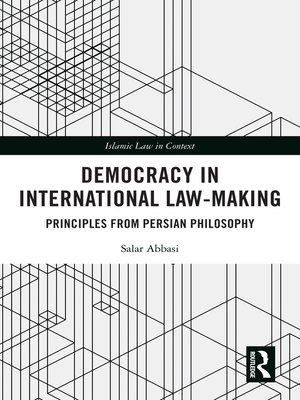Democracy in International Law-Making
ebook ∣ Principles from Persian Philosophy · Islamic Law in Context
By Salar Abbasi

Sign up to save your library
With an OverDrive account, you can save your favorite libraries for at-a-glance information about availability. Find out more about OverDrive accounts.
Find this title in Libby, the library reading app by OverDrive.



Search for a digital library with this title
Title found at these libraries:
| Library Name | Distance |
|---|---|
| Loading... |
This book provides a critique of current international law-making and draws on a set of principles from Persian philosophers to present an alternative to influence the development of international law-making procedure.
The work conceptualizes a substantive notion of democracy in order to regulate international law-making mechanisms under a set of principles developed between the twelfth and seventeenth centuries in Persia. What the author here names 'democratic egalitarian multilateralism' is founded on: the idea of 'egalitarian law' by Suhrawardi, the account of 'substantial motion' by Mulla Sadra, and the ideal of 'intercultural dialectical democracy' developed by Rūmī. Following a discussion of the conceptual flaws of the chartered and customary sources of international law, it is argued that 'democratic egalitarian multilateralism' could be a source for a set of principles to regulate the procedures through which international treaties are made as well as a criterion for customary international law-ascertainment.
Presenting an alternative, drawn from a less dominant culture, to the established ideas of international law-making the book will be essential reading for researchers and academics working in public international law, history of law, legal theory, comparative legal theory, Islamic law, and history.







